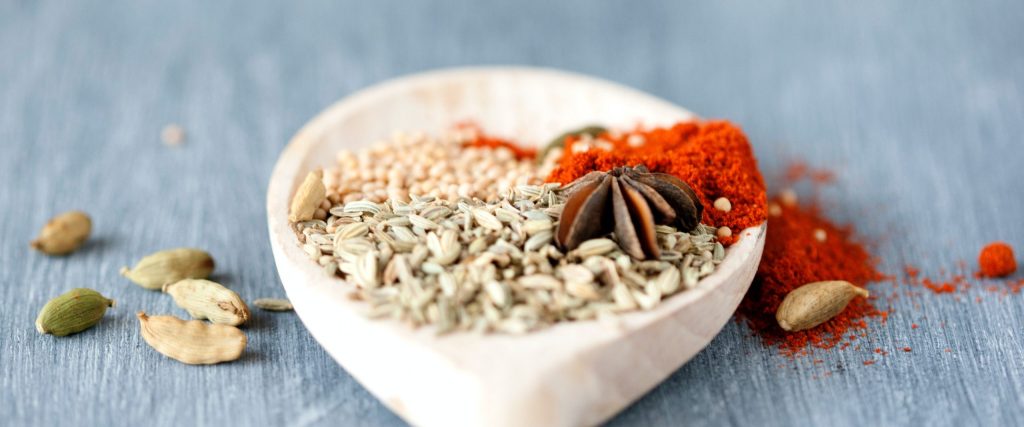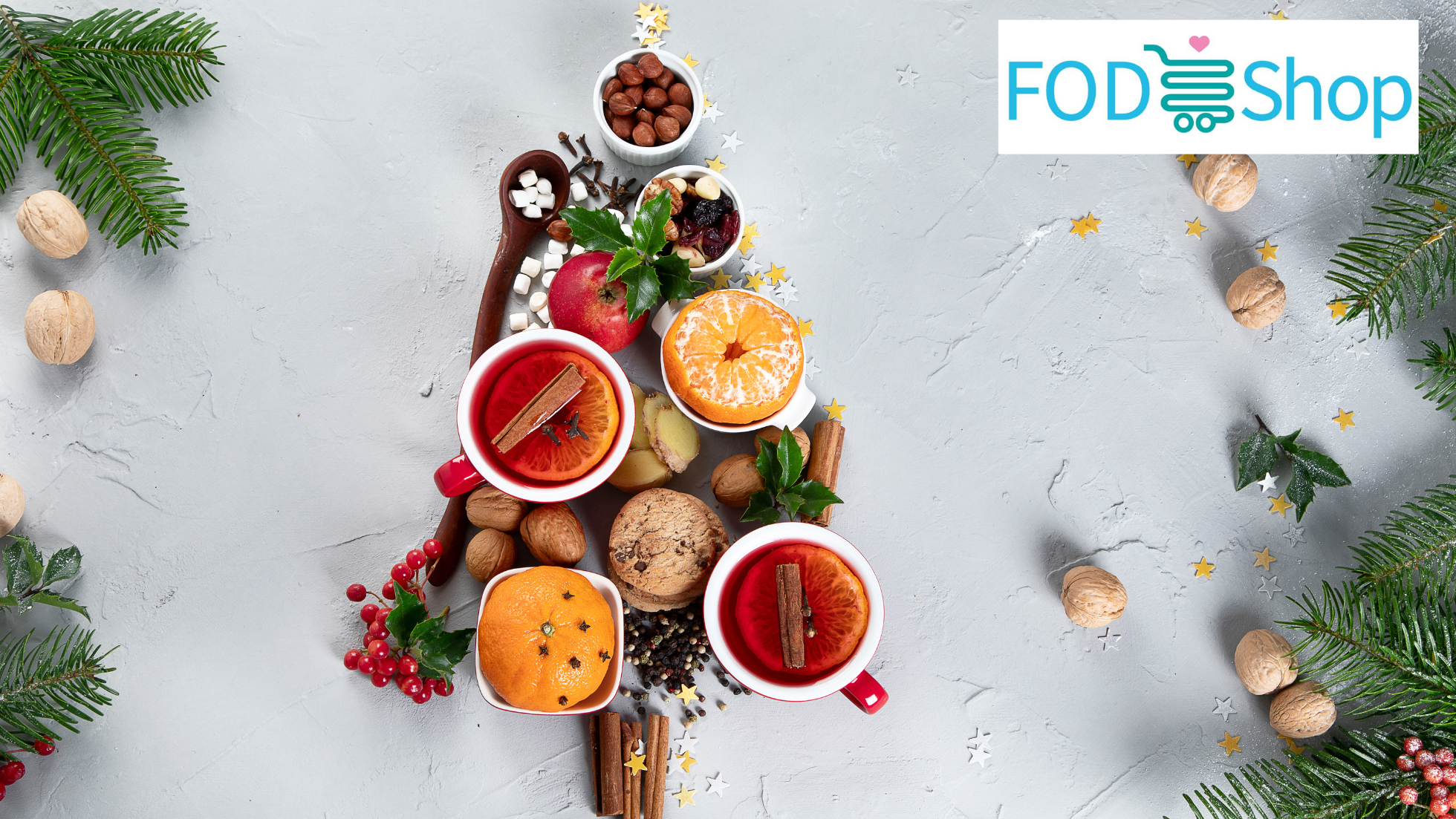FODMAP stands for Fermentable Oligosaccharides, Disaccharides, Monosaccharides, and Polyols! They are a group of carbohydrates and sugar alcohols found in various foods. Sound confusing? Let’s elaborate.
These compounds are not fully absorbed in the small intestine and instead travel to the large intestine, where they can cause trouble for sensitive tummies, leading to those unwelcome digestive symptoms [1].
Let's meet the members of the different FODMAP groups and common foods which fall within these groups:
Oligosaccharides: These include fructans and GOS (Galacto-Oligosaccharides) and are commonly found in wheat, rye, onions, garlic, and legumes [1].
Disaccharides: Lactose, the sugar present in dairy products such as milk, yogurt, and cheese, falls into this category.
For those with lactose intolerance, consuming these foods can lead to unpleasant symptoms, commonly loose bowel movements [1].
Monosaccharides: Fructose, the natural sugar found in fruits, honey, and high-fructose corn syrup, is part of this group.
While fruits are healthy options, some individuals may experience gut symptoms after eating certain high-fructose fruits [1].
Polyols: These are sugar alcohols like sorbitol, mannitol, xylitol, and maltitol, which can be found in sugar-free gum, stone fruits, and certain artificial sweeteners [1].
These could be the sneaky additions to your diet that contribute to your symptoms of bloating!
Let's discuss the low FODMAP diet approach.
A common myth is that the low FODMAP diet is something you must maintain or stick to in order to maintain your symptoms. This is totally incorrect!
The low FODMAP diet is a 3-step process, not a life-long diet. It's not about banning all FODMAPs forever, because this would actually be terrible for your gut health long-term.
Although they can be problematic to sensitive tummies, These FODMAPs actually provide an essential food source to the healthy bacteria living in your gut, so cutting them out for long periods of time can actually do more harm than good!
Rather we use this low FODMAP diet approach to eliminate these FODMAPs temporarily and then re-introduce each of them to identify your personal food triggers in order to expand your diet again. It involves reducing high FODMAP foods for 4-6 weeks, followed by systematically reintroducing them to determine your triggers and tolerance levels [2].
Remember, it's a 3-step approach, and you don't have to face it alone. Consulting with a registered FODMAP Dietitian can provide valuable guidance and support throughout the process.
Following a low FODMAP diet doesn't mean giving up on delicious meals.
It's all about making smart swaps and exploring FODMAP-friendly options. Seeing your registered FODMAP Dietitian can make the process a lot smoother by providing FODMAP-friendly recipes and meal plans.
Here are some quick tips on what foods to choose on the low FODMAP diet, phase 1:
Please note, this is just a very small glimpse of what you can consume on the low FODMAP diet and you should always consult your local doctor or FODMAP Dietitian before starting the low FODMAP diet.
Remember, taking care of your gut health and overall well-being goes beyond the food you eat.
Managing stress, practising relaxation techniques like yoga or meditation, getting enough sleep, and staying physically active can all contribute to a healthier gut [4]. So, pamper yourself, find activities that bring you joy, and let your inner glow shine.
Remember, the low FODMAP diet should never be undertaken without guidance from a trained professional. For more questions and direction around FODMAPs and the low FODMAP diet, see your doctor or registered FODMAP Dietitian!
[1] Monash University. (n.d.). About FODMAPs. Retrieved from https://www.monashfodmap.com/about-fodmap-and-ibs/
[2] Gibson, P. R., & Shepherd, S. J. (2010). Evidence-based dietary management of functional gastrointestinal symptoms: The FODMAP approach. Journal of Gastroenterology and Hepatology, 25(2), 252-258. doi: 10.1111/j.1440-1746.2009.06149.x
[3] Monash University. (n.d.). Vegetables, Proteins, Grains, Fruits, Sweeteners. Retrieved from https://www.monashfodmap.com/blog/vegetables/
[4] Halmos, E. P., Power, V. A., Shepherd, S. J., Gibson, P. R., & Muir, J. G. (2014). A diet low in FODMAPs reduces symptoms in patients with irritable bowel syndrome and a probiotic restores Bifidobacterium species: a randomized controlled trial. Gastroenterology, 146(1), 67-75. doi: 10.1053/j.gastro.2013.09.046

While IBS is a chronic condition and may never truly resolve, there are several prevention strategies that individuals can implement to manage their symptoms effectively and live with IBS relatively freely.
Here are some strategies that may help prevent IBS flare-ups.
The first step in preventing IBS flare-ups is to identify your personal triggers. If you have not done this, it is time to see a specialist Dietitian and take this first step to finding relief: click here!
FODMAPs are certain types of carbohydrates that are poorly absorbed in the small intestine, leading to symptoms like bloating, abdominal pain, and diarrhea in people with IBS.
Following a low-FODMAP diet can help reduce IBS symptoms, but this should only be followed for a maximum of 6 weeks unless otherwise directed by your Dietitian. It is recommended to work with a specialist dietitian to go through the low FODMAP process. Click here for our recommended specialist Dietitian.
Eating smaller, more frequent meals, chewing food thoroughly, and avoiding trigger foods can help reduce the risk of IBS symptoms flaring up.
Stress management techniques such as deep breathing, meditation, and yoga can help reduce stress levels and prevent IBS flare-ups.
Regular exercise is also an effective stress management tool that can help improve digestion and prevent constipation.
Low intensity exercise can help improve digestion and prevent constipation. Walking, jogging, swimming, and cycling are all effective forms of exercise.
If you're taking medications that are causing IBS symptoms, talk to your Doctor or Dietitian about switching to a different medication or adjusting your dosage.
In some cases, medications may be necessary to manage symptoms.
IBS flare-ups can be very uncomfortable, but with the help of a specialist dietitian to identify triggers and implement prevention strategies, we can help manage your symptoms effectively.
If you want to learn more about how to resolve your IBS symptoms for good, identify your triggers and rebuild a healthy gut, visit @theibsprogram for more information!
The IBS Program is a unique program with a proven framework designed to get you relief for your IBS symptoms as fast and as effectively as possible.

Author: Ellen Kessling, Accredited Practicing Dietitian, IBS & FODMAP Specialist
Ellen is an Accredited Practicing Dietitian & Nutritionist specialising in women’s health, gastrointestinal health and the treatment of irritable bowel syndrome.
Ellen completed her 4-year Health Science Degree at the University of Adelaide, and then went on to complete her 2-year Master's degree in Nutrition & Dietetics at Flinders University. She is a trained Monash FODMAP Dietitian and has developed expertise in gut health and IBS management, and enjoys the area of women’s health, including skin, hormones, fertility, and pre & post pregnancy nutrition.
She loves treating all areas of women's health with a holistic and empathetic approach to practice and encourages sustainable, long-term changes rather than quick fixes. She has a focus on packages and programs in her practice to provide more ongoing, specialised care and support beyond what a 1:1 consultation can offer.
She believes a well-rounded, holistic approach to care leads to more effective and sustainable results in her clients.
By Lisa Kunstler: Nutritionist at FodShop, Personal Trainer, and Group Fitness Instructor
The festive season is a busy time of year with added stresses for those of us with irritable bowel syndrome (IBS) and other dietary conditions. To make sure this season is fun and tummy safe for you and the family, FodShop have collated some tips to enjoy Christmas low FODMAP!

A great idea for low FODMAP Christmas preparations is to bring your own low FODMAP dishes. With Christmas being a busy time of year, our family and friends love the help catering!
You could create a tummy friendly, low FODMAP salad, frittata, or charcuterie board that everyone can enjoy.
Plain, lean meats, parsnips, carrots, potatoes, gluten free crackers, and hard cheeses are some great low FODMAP options.
For some great low FODMAP Christmas food products, like puddings, custard, and gravy, check out the FodShop website HERE.
Low FODMAP diets are often void of fibre, an important component of nutrition found in vegetables, fruits, and wholegrains, that can aid in the prevention of constipation and diarrhoea and decrease abdominal pain. (1)
Approaching Christmas, it is important to keep up your fibre intake and set yourself up for success.
If you’re struggling to consume the recommended 25-30g of fibre per day, try a fibre supplement, like SunFibre or Regular Girl, that may help improve IBS symptoms.
It’s important to start the day right and stay hydrated to prepare your gut for the day.
Manage any concerns or stress you have over the day by meditating, lightly exercising, or chatting to a friend. (2) All of these are great ways to heal the connection between gut and brain and improve IBS symptoms.
Up until the big event, try to avoid FODMAP stacking.
This involves minimising the number of high FODMAP meals consumed during the day to avoid any possible flare ups at Christmas dinner. For more information on FODMAP stacking, check out the recent webinar recording by FodShop and the Diet vs Disease team.
Communication is key on the day to make sure everything runs smoothly.
Try to eat low FODMAP and don’t be afraid to ask for dishes’ ingredients.
Make sure to also limit alcohol and caffeine intake, as both can exacerbate IBS symptoms by irritating the gut. A great alternative is an herbal tea!
If all else fails, there are a variety of enzymatic supplements available at FodShop to get you through the festive season.
Supplements we recommend to IBS patients are Intoleran and FODZYME. Both break down complex FODMAPs, like fructans and lactose, into simple sugars that are easily digestible, making Christmas dinners stress free!
Finally (and most importantly) enjoy and have a Merry low FODMAP Christmas!
About the Author
Lisa Kunstler
Expert Contributor
Email: nutritioninanutshell101@gmail.com
Qualifications: Bachelor of Nutrition Science, Certificate IV in Personal Training, Certificate III in Group Fitness
About: Lisa Kunstler graduated as a Nutritionist from Deakin University in 2022 and has her Certificate III and IV in group fitness and personal training. She has worked at FodShop, a company selling low FODMAP food products for people with irritable bowel syndrome and other conditions, for almost a year. Lisa worked as a student during her degree at the Olive Wellness Institute, where her role involved educating health care professionals on the health benefits of extra virgin olive oil and olive products.
Research/Areas of Interest: Nutrition, Irritable Bowel Syndrome, Fitness, Low FODMAP Diet, the Mediterranean Diet, and the health benefits of Extra Virgin Olive Oil.
For more low FODMAP Recipes check out our Recipe Ebooks! Or download our FREE 4-Day Low FODMAP Meal Plan by entering your email below.
FODMAPs are fermentable components of certain carbohydrates found in the food we eat. They are incredibly beneficial to the health of our gut, but in some people, they can cause digestive discomfort and symptoms.
Read more to find out what is FODMAP...
FODMAP stands for Fermentable, Oligosaccharides, Disaccharides, Monosaccharides and Polyols.
Those who suffer from Irritable Bowel Syndrome (IBS) will feel the effects of high FODMAP consumption.
These fermentable carbohydrates cause symptoms such as bloating, gas, urgency, abdominal pain, discomfort and varied bowel habits such as constipation and diarrhoea or a combination of both when consumed in the wrong combinations, or amounts.
The presence of these carbohydrates in the digestive system can cause water to be dragged into the small intestine, leading to bloating and diarrhoea. Also, because they aren’t readily absorbed in the small intestine, they can travel into the large intestine where the bacteria ferment them, producing gas as a by product. This gas can lead to bloating, and expansion of the gut, causing pain in those with IBS.
People with IBS have highly sensitive intestines, meaning they may produce similar amounts of gas as someone without IBS, but they feel the effects of it.
There are different subgroups of foods that sit underneath these FODMAP categories and people with IBS may react to 1 or more of these subgroups.
To reduce FODMAP load in your diet and alleviate these symptoms, consult our Dietitian about trailing the diet, or take a look at The IBS Program and undergo the low FODMAP diet independently or with additional support.
The Low FODMAP diet was developed as a tool to help people with IBS manage their diet and alleviate symptoms. If you need help with low FODMAP recipes, download our free meal plan below!
Follow @theibsprogram on Instagram for daily tips and tricks on the low FODMAP diet.